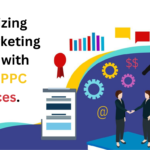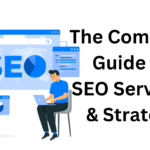Social media has become more important than ever for businesses small and large. But what exactly is social media marketing, and why it is such an important part of your business. In this blog post, we will try to make sure you are thoroughly amazed by finding out all about marketing and as well understand why it is so important for every business.
The Growing Significance of Social Media in Business.
Social media platforms were designed for people to connect with each other and share their moments. But they have since morphed into valuable venues for businesses to communicate with customers, increase their exposure and make sales. Social media provides businesses access to a borderless audience, as more than 70% of Americans.
Those companies that interact cleverly with social networks will become a larger group of clients. Facebook, Instagram, Twitter and LinkedIn have provided companies the ability to create content targeted for reaching their ideal customers. Social network ads can also be targeted to a fine scale. This means all spend and all energy put in is reaching the desired audience directly, again reducing waste.
The proof is in the numbers: it just makes sense that social media and businesses go hand-in-hand. Brands that adopt media marketing use it to get a result of higher customer engagement, brand loyalty and conversion rates. And this trend is only projected to grow, so businesses better get their act together.
Understanding Social Media Marketing.
Definition
Social media marketing involves using social platforms to promote your products or services. This includes creating content, engaging with followers, running advertisements, and analyzing performance metrics to refine your strategies.
Techniques
Effective social media marketing encompasses various techniques, including:
- Content Creation: Crafting engaging posts, images, and videos that resonate with your audience.
- Influencer Partnerships: Collaborating with influencers to reach a broader audience.
- Social Media Advertising: Using paid ads to target specific demographics.
- Community Engagement: Interacting with followers through comments, messages, and live sessions.
Objectives
The primary objectives of social marketing are to:
- Increase brand awareness.
- Drive website traffic.
- Generate leads and sales.
- Build a loyal community.
- Enhance customer service.
Why Social Media Marketing Is Essential for Businesses Today?
Social media marketing carries many advantages in this highly competitive market:
Enhanced Brand Awareness
Through consistently sharing relevant and interesting content businesses help to ensure they remain in consumers’ minds. Repeated exposure is key to developing familiarity and trust, which are critical for long-term growth.
Improved Customer Engagement
It enables businesses to connect with their prospects, so rather than creating content about lunar exploration on Mars and hoping it generates more likes, the brand’s handlers get lost in conversation. Responding to comments and messages is an excellent way of letting your customers know that their opinions matter, which can lead them to enjoy the experience as a whole.
Cost-Effective Advertising
Using traditional advertising methods is much more expensive than media marketing. Now even small businesses can target ads that produce high ROI.
Social Media Marketing Case Studies
Case Study 1: Wendy’s
Wendy’s is famous for being a very clever and entertaining social advertiser. In grabbing the attention of its customers, Wendy’s has mounded a humorous persona that resonates with users and as such successfully expanded their brand presence on social media.
Case Study 2: Glossier
Glossier uses Instagram to highlight user-generated content and interact with their audience. It has helped them in forming a loyal community and further develop branding.
Case Study 3: Airbnb
Airbnb shares beautiful visual content about various stays and experiences using social media. They are dedicated to their storytelling approach, and it works for them as they attract the right fans that book fest tickets.
Your Guide to An Awesome Social Media Marketing Strategy
Identify Your Goals
The first thing you want to do is define what it is that you hope to accomplish with your social media marketing. Be Sure to Define Your Objectives Whether you hope to build some brand awareness, drive people back to your website or capture more leads through the service.
Know Your Audience
Know your audience and care about what they want. Mine them from demographic and analytical information to not only add value but content formatted in the way they like it.
Create Engaging Content
Plan all your uploads on a content calendar Just make sure that your content is visually attractive, educational and it will resonate with your audience.
Tools and Platforms Best for Your Business.
Ideal for reaching a broad audience, Facebook offers robust advertising options and detailed analytics to track performance.
Perfect for visually-driven businesses, Instagram allows you to share photos, videos, and stories that captivate your audience.
Best for B2B marketing, LinkedIn helps you connect with industry professionals and share thought leadership content.
Key Metrics for Social Media Marketing Campaigns.
The metrics to track These are very important steps ourselves for our social media marketing:
- Engagement Rate: Measures the level of interaction with your content.
- Reach: The number of unique users who see your content.
- Conversion Rate: The percentage of users who take a desired action, such as making a purchase.
- Return on Investment (ROI): Evaluates the financial return from your social activities.
Conclusion
While social media marketing may have seemed like a fad at first, it is now one of the cornerstones in digital advertising and a strong part of your online strategy. Using social media to boost brand awareness, engage customers and drive growth Whether you are at the beginning or looking for the way to upgrade your tactics, always remain consistent, genuine and think about what the audience wants.







Leave a Reply